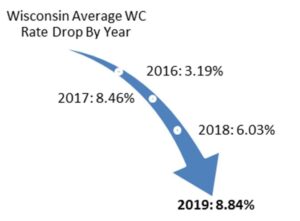A Retrospective Claims Analysis of the Rate of Complications in Patients Undergoing Treatment for Paroxysmal Nocturnal Hemoglobinuria
That is the title of my recent paper with co-authors Denise Clayton, Glorian Yen, Lincy Geevarghese, Yulin Shi Anem Waheed. The abstract is below.
Introduction
Paroxysmal nocturnal hemoglobinuria (PNH) is a rare blood disease associated with complications that increase morbidity, such as thrombosis and chronic kidney disease. Limited data exist regarding complications among treated patients outside of clinical trials, especially for patients treated with ravulizumab.
Methods
This study leverages MarketScan claims data to examine the rate of complications in patients receiving PNH treatment. Patients with a diagnosis code of PNH [International Statistical Classification of Diseases and Related Health Problems (ICD-10) diagnosis code: D59.5] between October 2015 and December 2020, aged ≥ 18 on the date of diagnosis, who had a ≥ 6-month follow-up period of continuous enrollment and ≥ 1 PNH-indicated treatment on or after the first PNH diagnosis were included.
Results
Among 211 patients diagnosed with PNH being treated with eculizumab or ravulizumab between October 2015 and December 2020, the most common complications were iron deficiency (20.4% of patients), arterial embolism and thrombosis (16.1%), and chronic kidney disease (11.8%). Overall, 44.1% of patients experienced ≥ 1 complication.
Conclusion
The high number of patients with PNH receiving treatment who nevertheless experienced complications demonstrates significant unmet medical need. Further analysis with larger sample sizes and including newer therapies, such as pegcetacoplan and iptacopan, is required to fully understand the scope and magnitude of this unmet need.
You can read the full paper here.



